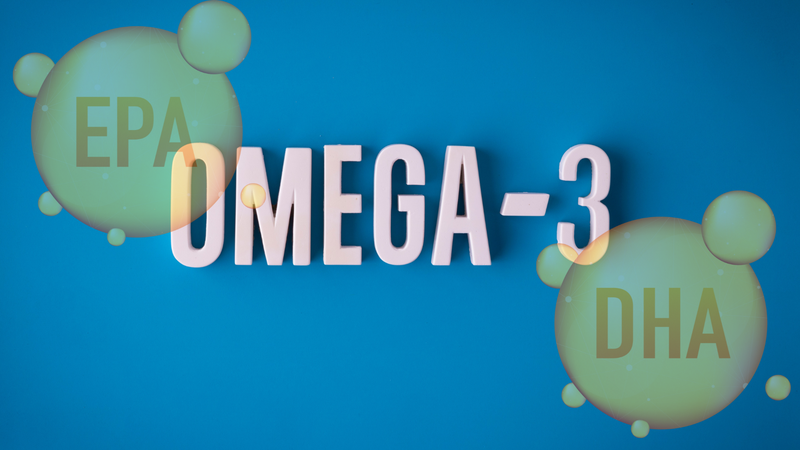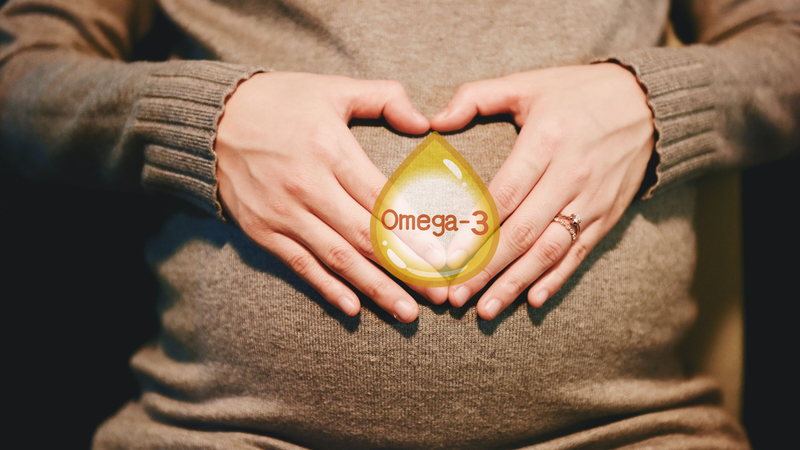Omega 3 is an essential fatty acid for infants and pregnant women. Adequate omega 3 consumption is extremely important during pregnancy.
Omega 3 is a group of long-chain polyunsaturated fatty acids that are present in supporting the development of many body functions, especially during the pregnancy of pregnant women. Depending on each stage of fetal development, omega 3 should be supplemented appropriately and properly. So should pregnant women take omega 3 every day? The following article will help you answer this question.
Why do pregnant women need to take omega 3?
Omega 3 is a group of long-chain polyunsaturated fatty acids, which are essential nutrients for health and development. Studies show that the two most beneficial types of omega 3 are EPA (eicosapentaenoic acid) and DHA (docosahexaenoic acid). EPA will help support the heart, immune system and inflammatory response. DHA will support the brain, eyes and central nervous system. Based on these benefits, omega 3 supplementation in the diet of pregnant women will help the initial neurological and visual development of the fetus.

Two types of omega 3 that are beneficial for fetal development are EPA and DHA.
In addition, omega 3 supplementation can also help pregnant mothers:
- Produce breast milk after birth;
- Prevent labor and premature birth, reduce the risk of preeclampsia and weight gain at birth;
- Reduce the mother’s risk of postpartum depression.
Should pregnant women take Omega 3 daily?
Based on the benefits that omega 3 brings to both pregnant women and fetuses, omega 3 supplementation during pregnancy is essential. The appropriate time to start supplementing omega 3 should be from around the 12th week of pregnancy onwards. Around this stage, the fetus will begin to form and develop strongly.
However, experts still encourage pregnant women to supplement omega 3 earlier, possibly starting before pregnancy and maintaining until the postpartum period. Specific stages for pregnant mothers to supplement omega 3 are as follows:
- Before pregnancy: It is necessary to ensure that the body will supplement enough DHA and EPA necessary for the initial development of the fetus if planning to get pregnant.
- First trimester (first 3 months): During this stage, the formation of the neural tube to create the structure of the brain and spinal cord in the fetus needs to be supplemented with DHA. Supplementing omega 3 at this stage also helps reduce the risk of birth defects related to the brain and nerves in children.
- Second trimester (middle 3 months): This stage is extremely important for the development of the brain and eyes of the fetus. DHA plays a role as the main component of the brain and retina, so pregnant mothers need to supplement omega 3 to support this process. In addition, omega 3 also helps provide enough nutrients for the fetus by improving blood flow to the placenta.
- Third trimester (last 3 months): At this time, the fetus has gradually developed comprehensively, pregnant mothers need to supplement omega 3 to support the formation of cognitive abilities and vision of the baby after birth. In addition, supplementing omega 3 at this stage also helps reduce the risk of premature birth and supports the mother’s cardiovascular health in the last weeks of pregnancy.
- Postpartum period: Because omega 3 will support breast milk production, so after giving birth, mothers still need to supplement omega 3. Babies drink breast milk and receive DHA through breast milk to help their brain develop. In addition, postpartum depression will also be limited if omega 3 is supplemented at this stage.

Pregnant women should supplement omega 3 throughout pregnancy.
Depending on the method of omega 3 supplementation, pregnant women may not need to take omega 3 daily, more specifically:
- If you have a diet rich in omega 3: If the pregnant woman has been provided with omega 3 through foods rich in omega 3 in daily meals, there is no need to take omega 3 supplements every day.
- If there is a lack of omega 3: In case the daily meals do not meet the amount of omega 3 needed for pregnant women through food, then omega 3 should be taken daily to ensure adequate amounts of EPA and DHA needed for the fetus.
From what sources should omega 3 be supplemented?
Preferably omega 3 supplementation for pregnant women should be through foods rich in omega 3 and applied to daily meals. The best sources of omega 3 EPA and DHA are cold-water fish such as salmon, tuna, sardines, anchovies and herring. However, there are some concerns about poisoning or mercury in fish that will affect pregnant women and fetuses. Therefore, fish oil is often the safest source of EPA and DHA recommended during pregnancy.
Recommendations show that pregnant women should supplement at least 200 mg of DHA per day during pregnancy. Depending on each subject, you should choose a suitable and safe method of omega 3 supplementation, which can be through food or from supplements.

Some foods rich in omega 3
Depending on the daily diet, pregnant women can choose whether or not to take omega 3 daily. In addition, it is also necessary to ensure adequate provision of other nutrients to ensure a healthy pregnancy for both mother and baby.





